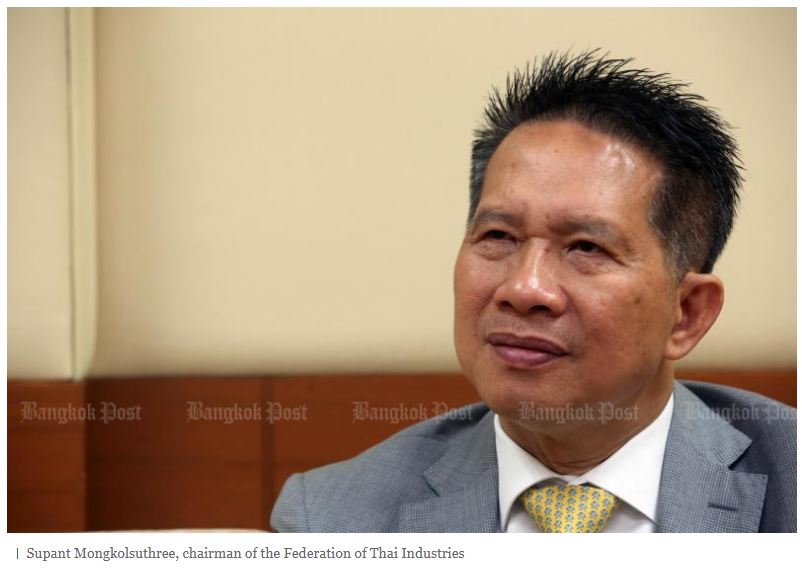Thailand: FTI demands tougher currency measures to save exports
Thailand must check the runaway gain in its currency as it makes it harder for exporters to compete in the global market, according to the Federation of Thai Industries.
Authorities should curb foreign capital inflows if they continue to pressure the currency, FTI chairman Supan Mongkolsuthree said in an interview on Wednesday. The group considers baht at about 32 to a US dollar, about 6% below its current rate, as an ideal level to support exports, he said.
While the Bank of Thailand last week introduced a raft of measures to cool the baht’s rally, Finance Minister Arkhom Termpittayapaisith called for further steps to make the currency more competitive for exports. The push for a weaker currency stems from bets only a rebound in shipments from the trade-reliant nation can help revive an economy battered by the coronavirus outbreak. Tourism, the other key engine of Thailand’s economy, remains in limbo with borders closed to most visitors.
“Thai authorities need to consider tougher measures like taxing short-term inflows,” said Mr Supan, whose federation has more than 11,000 members across 45 industries. “We believe that baht at 32 against the US dollar is an appropriate level given our economic fundamentals. At the current level, we are exhausted as it’s very hard to compete.”
The baht has rallied more than 8% from this year’s low in April, hitting a 10-month high earlier this month, as foreign investors plowed money into the nation’s bonds and stocks with the return of appetite for riskier emerging-market assets amid a weak dollar. Net foreign fund inflows into stocks and government bonds stood at $2.4 billion this month alone, according to data compiled by Bloomberg.
‘Not realistic’
BoT Assistant Governor Chantavarn Sucharitakul said on Thursday “it will not be realistic to target any level of the exchange rate.” Authorities are doing their best to manage the speed of change in the foreign exchange markets, she said.
The central bank last week announced plans to ease rules on capital outflows and greater scrutiny of investment into bonds, following calls from exporters and policymakers to stem the rally in baht. But the measures failed to cool the currency with the dollar extending its losses.
The government should continue to stimulate local demand as tourism is “still in a coma,” Mr Supan said, adding steps to support consumption and domestic tourism should be extended until mid-2021. Authorities should ensure financial liquidity to businesses by offering more loan guarantees and expedite government payments to private partners, he said.
Thailand’s economy may fare better than previously forecast with signs of improvement already visible in the past two months, according to Mr Supan. The recovery may accelerate next year with the availability of Covid-19 vaccines, easing risk of trade war and continued government investments, he said.
Source: https://www.bangkokpost.com/business/2026383/fti-demands-tougher-currency-measures-to-save-exports


 Thailand
Thailand




